An essential part of operating the network of all Blockchain today is Nodes, however Node operation is often not used by the majority but is only suitable for those with a background in programming. So what is Node? How can a newbie without any programming knowledge run his own Node?
Some other articles from Weakhand that may be helpful to everyone:
- 5 Jobs For Freelancers In Crypto To Earn $1000/Month
- What is Ethereum? All About Ethereum
- What Are Validators, Nodes and Miners? The Difference Between Validator, Node and Miner
What is Node?
In the blockchain network, each Node plays an important role in validating new transactions and checking the integrity of the blockchain. When a new transaction is created on the blockchain, it is transmitted to all nodes in the network. Nodes will then check the validity of the transaction according to some previously established rules and then send information about the transaction to other nodes.
If most nodes confirm the validity of the transaction, it will be added to the blockchain. In case an invalid or inconsistent transaction occurs in the network, Nodes will try to solve the problem by finding the cause and updating their blockchain.
In addition to validating transactions, Nodes are also often involved in the process of mining and creating new blocks for the blockchain. In blockchain networks with a Proof of Work (POW) mechanism, Nodes often have to mine to find a solution to a difficult cryptographic problem to create a new block and receive a reward in that network’s cryptocurrency. In other blockchain networks such as Proof of Stake (POS), the role of Nodes is similar but there is no need to mine.
In short, Nodes in a blockchain network are important endpoints that help ensure the integrity and security of the blockchain and are often involved in activities related to transaction validation, block mining, and network management. blockchain grid.
The Importance Of Nodes For Blockchain
In the blockchain network, each Node plays an important role in building and maintaining the integrity and reliability of the system. Here are some of the importance of nodes in blockchain:
- Transaction authentication and blockchain validity: Nodes are used to validate the validity of transactions on the network and ensure that transactions are vetted enough to be added to the blockchain. Nodes will check new transactions before accepting and spreading them to other Nodes. By doing this, Nodes play an important role in ensuring the accuracy and reliability of the blockchain.
- Network management: Nodes also help manage the blockchain network. They use special protocols to connect and exchange information with other Nodes in the network. By doing this, Nodes help increase network synchronization and keep the blockchain consistent across the entire network. They also help ensure that different nodes are running the same version of the blockchain.
- Mining and creating new blocks: Nodes in the blockchain network are often used to mine and create new blocks on the blockchain. In networks using the POW consensus mechanism, Nodes must solve complex computational problems to create new blocks and receive rewards.
- Privacy and security: Nodes play an important role in the security and privacy of blockchain. By checking and verifying each transaction, Nodes help ensure that no invalid transactions are added to the blockchain. Nodes are usually capable of detecting attacks and untrusted key failures and will automatically remove it from the network.
How Nodes Process Transactions
The transaction processing process of Nodes is very complex when it comes to many technologies behind it, however we can understand how Nodes process transactions simply as follows:
- For new transactions created on the network, they will be stored on all Nodes in the network. Nodes will receive this information and check the validity of the transaction.
- Nodes will compare the new transaction information with previously added authenticated blockchain transactions to ensure that the transaction is not duplicated or detected in error.
- Node will then check the validity of each transaction according to previously established rules, including rules about syntax, total amount, and sender and recipient addresses of the transaction.
- Users will be verified by Nodes that they have enough funds and ensure that the user does not send more than their available funds.
- If the transactions are verified as valid, the Nodes will continue to transmit these transactions to other Nodes in the network to ensure that the blockchain is consistent across the entire network.
- In case of invalid or inconsistent transactions, Nodes in the network will try to resolve the problem by finding the cause and updating their blockchain. If nodes detect an invalid transaction, they block the transaction and prevent it from being published on the blockchain.
What Are the Requirements Necessary to Run a Node?
Necessary hardware
To run a Node, everyone needs to have a stable and fast enough network connection to ensure that you can exchange information and synchronize data with other Nodes on the network in the most optimal way typically with private blockchains. will require a different bandwidth.
Strong enough hardware is also necessary to compete with other Nodes in the same blockchain, and if your hardware is stronger than the average, you will earn more profits. Different blockchains also require different types of miners to run Node, so careful research before running is very important.
Required software
Currently, each blockchain also has a lot of separate software that needs to be installed to launch a Node, so fully preparing this software to ensure the Node running process goes smoothly is necessary.
Technical requirements
When running a Node we need to ensure that our information and data are secure and cannot be attacked or hacked. This may require security measures such as software updates, use of passwords and digital certificates.
Running a Node in the blockchain requires regular control and monitoring to ensure no errors occur during the run and handle cases that need to be resolved.
Classification of Node Types
Full Node
A type of Node that has the entire transaction and block history of the blockchain network and has the ability to confirm and propagate new transactions. Full Node is the most important type of Node in the blockchain network and is used to ensure the integrity of the network.
However, having too many full Nodes also causes the speed of the blockchain to decrease and the storage cost that users have to pay also increases many times, so current new generation blockchains are only limited to a limited number of full Nodes. certain.
Light Node
A type of Node that only stores part of the blockchain’s history to significantly save memory and does not function as a full Node. Light Nodes are often used on devices with limited memory capacity or when blockchain query speed is a priority.
Super Node
Super Node is a type of Node that holds trusted data and is used to provide scalability for the blockchain network. Super Nodes often have higher performance than Full Nodes and Light Nodes because they are often deployed on more powerful servers.
Instructions for Running Node for Beginners
Step 1: Rent VPS
VPS or Virtual Private Server is a virtual machine that allows anyone to run Node on it without having to turn it on 24/7. In addition, renting a VPS also helps people avoid unexpected incidents such as power outages, network outages,… affecting the process of running Node.
Currently, there are many different parties providing VPS rental services with different prices and service quality. Everyone can choose the service provider according to their needs to run Node, Hak Reserch will recommend everyone to use Contabo.
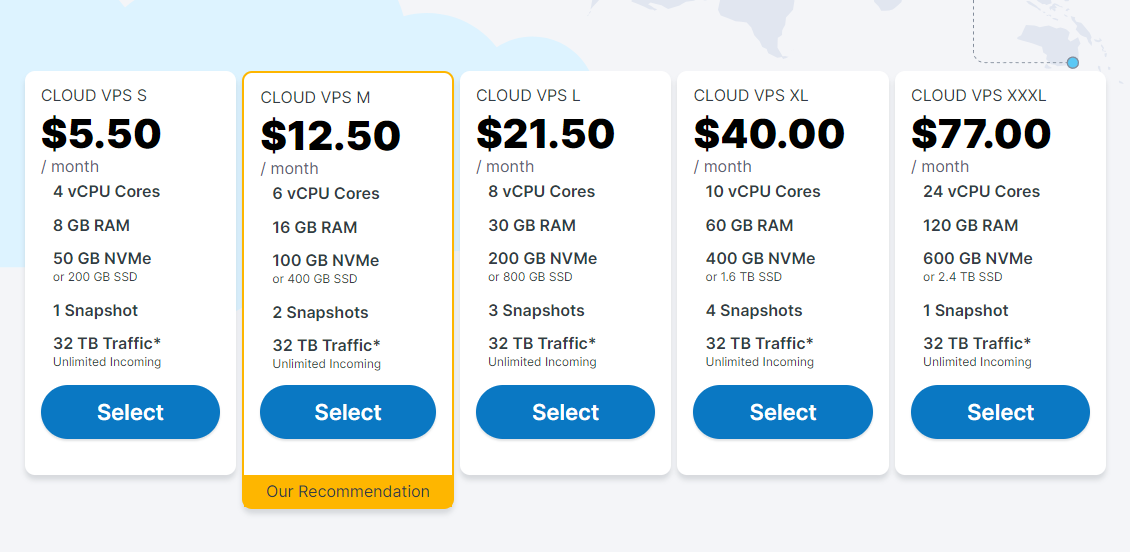
To rent VPS from Contabo, people need to take the following steps:
- Access: https://contabo.com/en/
- Sign up for a Contabo account.
- Choose to buy a VPS with a configuration that matches Blockchain criteria.
- Set up VPS parameters and make payment using international payment card.
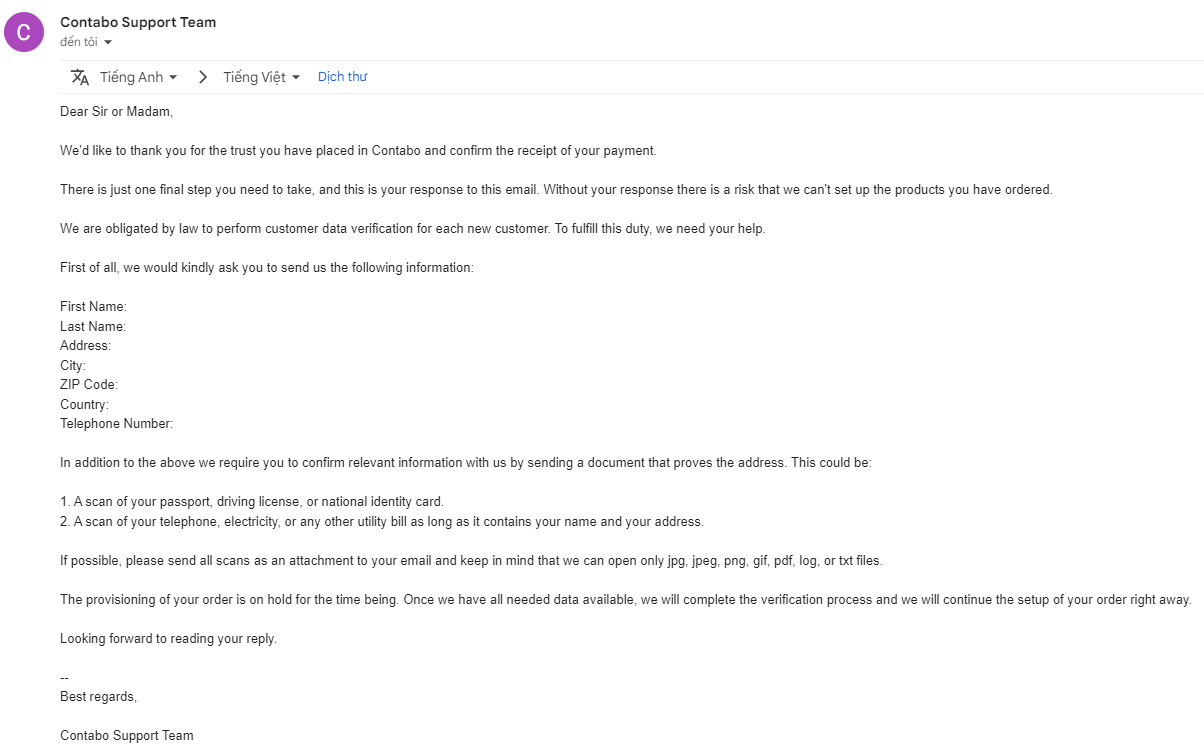
Submit additional information (if any):
- After payment is completed, Contabo will receive an email requesting identification information. Everyone needs to send the information requested by Contabo.
- About 30 minutes – 1 hour after completing the information, the VPS information will be sent to Email.
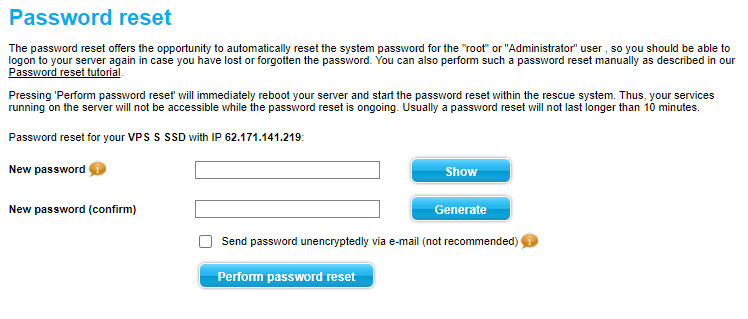
Change VPS password:
- Login back to Contabo: https://my.contabo.com/
- Access “VPS control” -> “Manage” -> “Password Reset” to change the password.
Step 2: Log in to VPS
- On Windows computers, people use the key combination “Windows + R” and type “CMD” then Enter.
- On MacOS computers, people use the key combination “Command + Space” and type “Terminal” then Enter.
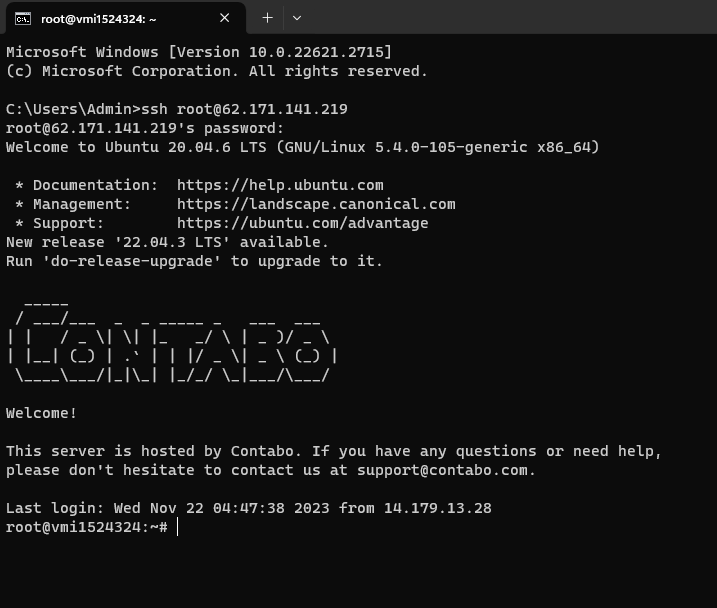
To log in to VPS, you need to use the command below and press Enter:
ssh root@< IP address >
For example:
- Enter the password just changed in step 1 and Enter.
- Type Y and select Enter if it is the first login.
Step 3: Enter the tmux function
tmux is a function that helps VPS operate continuously 24/7 even when we turn off the computer, so using this function will help our Node operate permanently without fear of stopping. unless we actively stop.
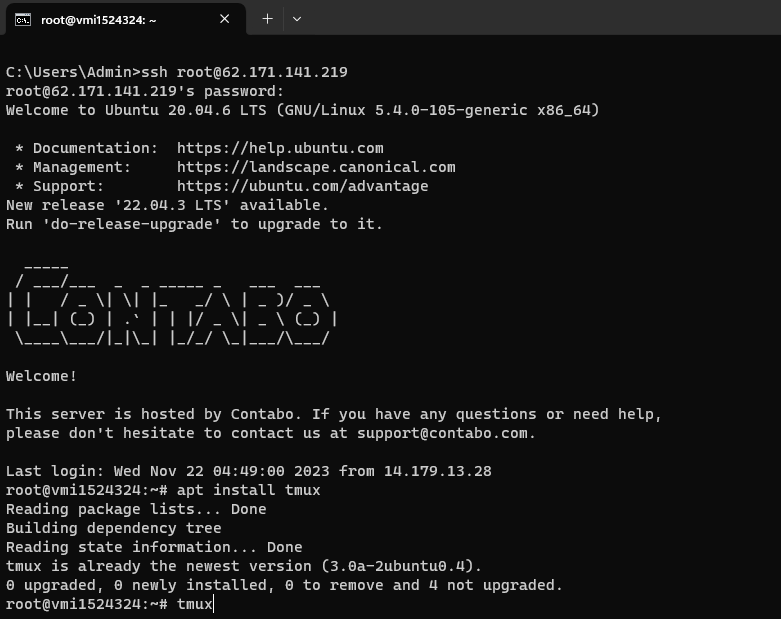
After logging in to the VPS, install tmux using the command below and press Enter:
apt install tmux
Use the command below and press Enter:
tmux
After completing the above steps, you can basically run Node through VPS. People can also refer to instructions for running Node for some projects at the Node Running section on Weakhand’s website.
Some other settings of Node

In the VPS control section, people can perform the following operations:
- Restart: Turn the VPS off and on again.
- Start: Start the VPS if it was previously disabled.
- Stop: Turn off VPS.
- Reinstall: Reset all VPS data.
Summary
Above is the information that everyone needs to understand to understand what Node is as well as how a new person can run node. Weakhand hopes that through this article, everyone will be able to find useful information.


